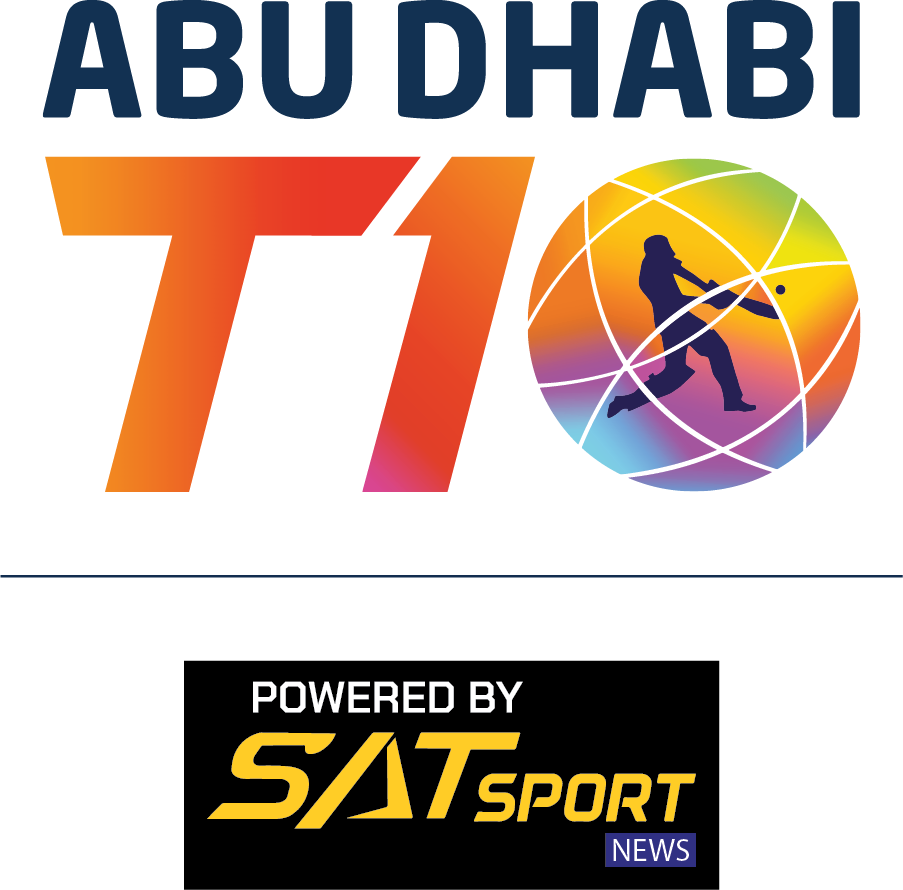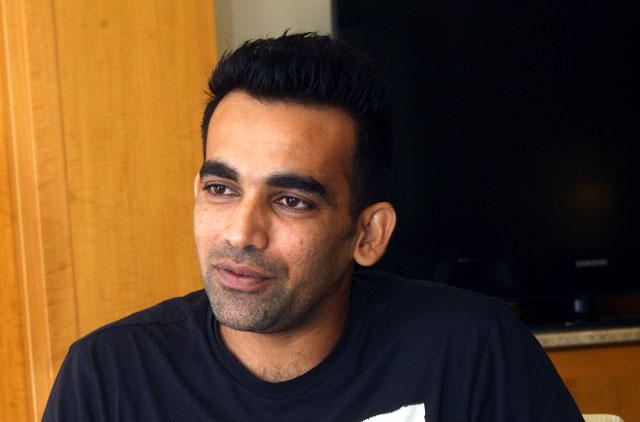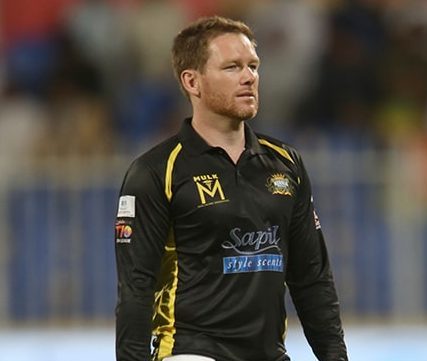Also chairman of the Emirates Cricket Board, Sheikh Nahyan Bin Mubarak al Nahyan is known to be an avid follower of the League, attending the matches last year and addressing other fans at the stadium in a speech that saw him discuss the semantics of bowling and batting.
“It’s really becoming something,” says Mulk of the League.
Tradition vs invention
Immensely popular in Britain and it’s former colonies, cricket’s still limited appeal in the rest of the world is because it’s notorious for being protracted. The purest, and most revered, version of ‘the gentleman’s game’, aptly called a test, is played over five days. It wasn’t until the 1970s that a shorter version of the game came through. Even that version takes a full work day to wrap up – hence being called one-day cricket.
I’d be extremely happy if we got T10 into the Olympics, but realistically, it’s not something I can do
However, for a game rooted in history and tradition, cricket is also becoming the fastest evolving major sport in the world. In 2007, playing nations competed in the first T20 World Cup, a faster-paced version roughly half the length of a typical one-day game.
The introduction of T20s has seen the sport’s average TV audience per year quadruple to 2.5 billion viewers. But Mulk isn’t satisfied.
“Test cricket is dying, and we’re still far behind football, soccer, or whatever it’s called.”
It would be a mistake to call Mulk’s seeming derision of the world’s most popular sport a dismissal of it.
He actually wants to emulate its appeal around the world.
In March 2017, Mulk hired a consultancy on a three-month project to understand what cricket lacked. “Football has 3.5 billion viewers on average each year. It delivers all the human emotions – anger, happiness, sadness and excitement – in 90 minutes,” he says.
To Mulk, 90 minutes is the most important term in the world at the moment.
Test cricket is dying, and we’re still far behind football, soccer, or whatever it’s called
“Because football… requires some skill… but at the end of the day you’re just putting the ball in a net. Cricket requires all kinds of ability. It’s a lot more complicated. It’s sophisticated. It’s just too long,” he says.
Tradition vs invention
Mulk’s zest for cricket shows in the fact that he was an accomplished athlete. Cut back to a little over 20 years ago and he held the record for the most wickets – ending a batsman’s innings with a ball – in the UAE’s domestic leagues. “I was also in the 15-man UAE squad for the 1996 World Cup,” he says.
That same year, Mulk entered into a joint venture called Prefab Building Industries with US-based Baker Group. Fearing that he wouldn’t be able to make the most of it, Mulk withdrew from the squad.
He still rues the decision, saying that if he could step back in time, it wouldn’t be one that he would repeat.
“When you’re young, you tend to worry about what could happen to your business,” he says. “But you can always make money. Playing in a World Cup though is a once-in-a-lifetime opportunity.”
It’s obvious that Mulk takes the idea of minting money quite lightly. While he acknowledges that “it’s taken him some time to do it,” he’s amassed a net worth now nearing $3bn. Since 2002, his company Alubond USA has helped build iconic projects such as the St Petersburg Stadium in Russia which hosted the 2018 FIFA World Cup as well as Dubai’s landmark projects including Al Maktoum International Airport and the Address Hotel in Downtown Dubai, which tragically caught fire on New Year’s Eve in 2015.
Cricket is cool. We just have to get people to realise it
However, it’s when talking about cricket that the industrialist’s eyes light up. “Cricket is cool,” he says.
We just have to get people to realise it.”
Give them what they want
Since the November after the study he had commissioned, Mulk has been attempting to do just that by relying on findings to launch the league.
T10 cricket is “supply and demand” says Mulk; fans want a shorter version of the game. It encapsulates all the essentials of cricket but subtracts the prolonged periods of defensive posturing and drawn out strategising that purists have guarded religiously for decades. What results is condensed into 90-minutes of fast-paced bowling aggression, big baseball-esque hits and sonic waves of applause from crowds.
The games are played by franchises bought by business owners who have paid anywhere between $4m to $10m for a ten-year renewable contract. “We wouldn’t be doing this if we couldn’t make money out of it,” says Mulk. “And each franchise owner knows they can make money from it in turn.”
90-minute cricket and the US are a perfect fit. And if we get into the US then the whole world will play ball
Each team franchise – named after a regional ethnic community – is required to invite at least two celebrities to a game. “If you look at the NBA league, the game only accounts for 40 percent of the time spent in the arena. It’s the performances and celebrity sightings that get people interested to stick around for the rest [of the game],” he says.
Devotees of the sport would understand what it means to say T10 cricket ‘is just not cricket’. Except that it is. It’s loud, brash and full of bravado, just like the legacy that Pakistani reverse swingers, English bodyliners, Australian sledgers created and the one of extraordinary batting that India’s captain Virat Kohli is currently carving – ust in 90 minutes.
And apart from the obvious fanfare of the tournament, an overwhelming majority of the world’s best cricketers – current and former – are now backing the league, some by playing in it. They include greats such as West Indies’ Chris Gayle, Australia’s Shane Watson, former Pakistan captain Shahid Afridi and current England captain Eoin Morgan.
Morgan has even pipped T10 to bring cricket back to the Olympics – it’s remained absent since being cancelled in 1904 from the Olympics in St Louis in the US. And despite concerns about how T10 will fundamentally change the game, many of the game’s most respected figures agree with Morgan’s call.
We wouldn’t be doing this if we couldn’t make money out of it. And each franchise can make money from it in turn
“I’d be extremely happy if we got T10 into the Olympics, but realistically, it’s not something I can do,” confesses Mulk. “The Olympics are between nations. The International Cricket Council will need to get all the nations’ cricket boards playing T10 first… maybe a T10 World Cup or something first.”
What Mulk will do is drive further adoption. This year, the T10 League could see games hosted outside of Sharjah, in Dubai and Abu Dhabi. He’s also equipping the league with an array of broadcasters from Ten Sports to Sony and will soon also sign Sky Sports, “because broadcast is crucial to adoption,” he says.
“India is our big market,” Mulk says of a country where the game is advancing rapidly. “In our first year, we registered a television rating point (TRP) of 0.02 in India. In our second year, we jumped to 0.2,” he says. The number might seem like barely a blip, but in a country of more than a billion people that amounts to roughly 150 million viewers. In Pakistan, the league has a TRP of 3.2, second only to the country’s own domestic league – played in the UAE.
Mulk’s biggest coup would be taking the game to a market where it could resonate like no other: the US.
“That’s the real market to believe in,” he says. “90-minute cricket and the US are a perfect fit. We’re already talking to the US Cricket Board. And if we get into the US, then the whole world will play ball.”
A team from the Gulf region that ranks among the best in the world?
It might seem like a pipe dream but could become more than likely if you look at where the UAE stands among teams that play cricket, according to T10 League chairman Shaji Ul Mulk.
“The UAE is currently 14th in the world among teams that play cricket. Once you crack the top 10 that’s when everything changes. The money starts flowing in and the world starts paying attention,” he tells Arabian Business. “At least $100m.”
Mulk’s T10 league couples superstar international athletes with local talent to form the backbone of its franchised teams, something that Mulk says will have a huge impact on how the game continues to be adopted in the country. The UAE has previously qualified for three cricket World Cups: in 1996 and 2015 and in the T20 World Cup in 2014.
The country currently hosts a number of cricket tournaments and is the de facto home country for the Pakistani national team. It is also being considered as a venue for the 2020 Asia Cup.
“With so much cricket in the country, more talent is being drawn to it. The country will soon have a team in every format of the game, and it’s very possible that it could improve it’s ranking,” Mulk says.
For all the latest business news from the UAE and Gulf countries, follow us on Twitter and Linkedin, like us on Facebook and subscribe to our YouTube page, which is updated daily.
Source | Arabianbusiness.com Feb 03, 2019


